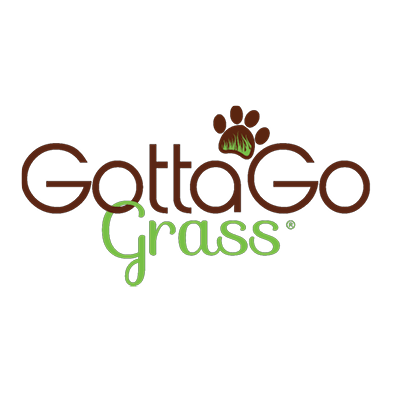
Dogs occasionally eating grass is entirely normal—it’s an instinctive and natural behavior for your furry friend. However, while this may be true, you don’t want your dog to eat their grass pee pad, whether real or synthetic.
Why Do Dogs Eat Grass?
Why dogs eat grass is not fully understood. But, the most common theory is that it’s their way to induce vomiting, either to settle an upset stomach or eliminate something irritating from their gut. Some others suggest that it is a natural behavior inherited from their wild ancestors or that they are bored and simply enjoy the taste and texture of grass.
READ: 10 Weird & Funny Things Your Dogs Do & What They Mean
Is Grass Safe for Dogs?
Grass-eating itself isn’t usually a problem. However, you have to keep an eye out for the type of grass your dog eats and the potential risks that come with it.
- The grass may be treated with fertilizers, pesticides, and other chemicals that can be poisonous to dogs.
- Long grass can get stuck in their eyes, paws, or ears, often causing irritation.
- Dogs can pick up ticks and other pests from the grass.
- Dogs can potentially eat slugs or snails, which can transmit parasites to them.
Dogs Eating Grass—When Should You Be Concerned?
Grass is a great source of fiber for dogs. If you notice them eating grass excessively, it could be their way of supplementing their nutritional requirements. This habit can also be a sign of anxiety in dogs, much like how some people bite their nails when anxious. If you’re worried about your dog’s plant-eating habits, it’s best to consult your vet to rule out any possible underlying health issues.
Below are some other situations when your dog eating grass could be concerning.
- Your dog is eating grass instead of its regular food.
- The grass-eating becomes excessive.
- Your dog repeatedly eats grass and vomits over a few hours.
- Your dog eats grass and appears unwell or exhibits unusual behavior afterward.

How to Keep Your Dog From Eating Grass
Perhaps the biggest challenge to your dog's grass-eating behavior is when they start chewing on their potty pad. Real grass pee pads, in particular, make quite an investment. Conversely, artificial grass pads are made of synthetic materials, so you don't want them to actually eat them.
Training and Distraction
The most effective way to address this behavior is through training. Train your dog the "leave it" or "drop it" commands. When you catch your dog eating their grass potty pad, take them away from it and redirect their attention by engaging them in play or another activity.
Provide Adequate Play and Mental Stimulation
Dogs eat grass when bored. So, it's important to keep them engaged in physical activities to help expend their energy and reduce the likelihood of boredom-induced grass-eating. You can also incorporate training into your routine—hire a dog trainer to teach your dog new tricks and commands or engage in obedience training.
Ensure a Healthy Diet for Your Dog
Dogs eating grass can be a sign of diet deficiency. To address this, seek advice from your vet to assess your dog's diet and recommend a balanced dog food appropriate for your pet's age, size, breed, and current health condition.
Avoid feeding your dog table scraps. Human food may lack certain essential nutrients your beloved canine companion requires and, if given excessively, can lead to an unbalanced diet. You may also supplement with vitamins and minerals to cater to your dog's specific needs. By giving your dog a nutritionally balanced diet, you reduce the likelihood of them attempting to address their nutritional deficiency by eating grass.

Final Thoughts
Understanding and addressing a dog's tendency to eat grass is essential for pet owners seeking to create a healthy environment for their dogs. While it's normal behavior for most dogs to occasionally eat grass, preventing excessive consumption, especially in younger dogs prone to chewing grass, requires a thoughtful approach.
As dog owners, your active involvement is essential in recognizing the factors influencing this behavior and implementing effective preventive measures. These involve maintaining a well-balanced diet, introducing engaging alternatives like chew toys, and employing positive reinforcement techniques.
In urban settings where natural grass pads are a convenient potty solution, training dogs to avoid them takes patience and consistency. The ultimate objective is to cultivate a safe and enriching environment to ensure your canine companion thrives without the potential risks of eating too much grass.




